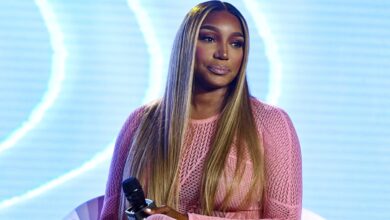Tech Conference Meant For Women And Non Binary Attendees Taken Over By Men Allegedly Lying About Their Gender


Attendees of the largest gathering of women seeking careers in STEM fields are upset after droves of men showed up after allegedly lying about being non-binary.
The Grace Hopper Celebration, named after pioneering computer scientist Grace Hopper, is promoted as the world’s largest annual gathering for women and nonbinary individuals in the tech industry, NPR reports.
Attendees had the opportunity to meet with sponsors, including Apple, Amazon, Salesforce, and Google, over the four-day event, according to NPR.
This career expo was already a competitive space with an estimated 30,000 annual attendees. However, access was even more limited this year by what the organizers described as “an increase in participation of self-identifying males.”
Videos shared on social media showed men crowding around recruiters, entering event venues in large numbers, and sometimes cutting in front of women to secure interview slots, reports NPR. Some male attendees allegedly misrepresented their gender identity during conference registrations.
Cullen White, Chief Impact Officer with AnitaB.org, the nonprofit organization behind the conference, addressed the issue during its plenary address, urging those who misrepresented their gender to stop the practice.
“Judging by the stacks and stacks of resumes you’re passing out, you did so because you thought you could come here and take up space to try and get jobs,” White said during the conference’s plenary address. “So let me be perfectly clear: Stop. Right now. Stop,” said White.
Previously, workers looking for secure, rewarding professions might feel confident choosing tech jobs. However, a wave of layoffs that affected the whole industry early this year left hundreds of thousands of workers with no jobs.
Historically, women have had lower employment rates in the tech sector, and industry-wide layoffs have disproportionately impacted them. According to The Women Tech Network, women made up 69.2% of tech industry layoffs.
In addition to that, there is still a persistent gender gap in the sector. The U.S. Department of Labor’s most recent data shows that women occupy just 26% of all STEM professions and even less—24%—in computer-related fields.
“We tried to create a safe space. And we saw the outside world creep in this week,” she said. “I can’t guarantee you that we’ll have solutions tomorrow. But I can promise you that we’ll be working.”
Source link : www.essence.com























































